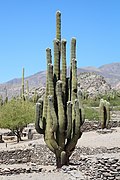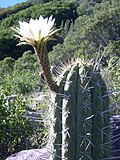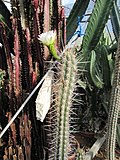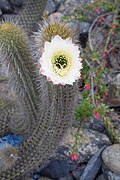| image | Scientific name | Distribution |
|---|
 | Leucostele atacamensis (Phil.) Schlumpb. | Chile, Argentina and Bolivia. |
| Leucostele bolligeriana (Mächler & Helmut Walter) Schlumpb. | Chile (Cardenal Caro) |
 | Leucostele chiloensis (Colla) Schlumpb. | Chile |
 | Leucostele deserticola (Werderm.) Schlumpb. | Chile (Antofagasta to Coquimbo) |
| Leucostele faundezii (Albesiano) Schlumpb. | Chile (Coquimbo) |
 | Leucostele litoralis (Johow) P.C.Guerrero & Helmut Walter | Chile (Coquimbo, Valparaíso). |
| Leucostele nigripilis (Phil.) P.C.Guerrero & Helmut Walter | Chile (Atacama to Coquimbo) |
| Leucostele pectinifera (Albesiano) Schlumpb. | Chile (Coquimbo) |
 | Leucostele skottsbergii (Backeb.) P.C.Guerrero & Helmut Walter | Chile (Coquimbo) |
 | Leucostele terscheckii (J.Parm. ex Pfeiff.) Schlumpb. | Argentina |
| Leucostele tunariensis (Cárdenas) Schlumpb. | Bolivia |
| Leucostele undulosa (Albesiano) Schlumpb. | Chile (Coquimbo) |
 | Leucostele werdermanniana (Backeb.) Schlumpb. | Bolivia |
|







